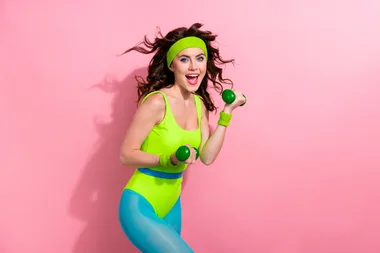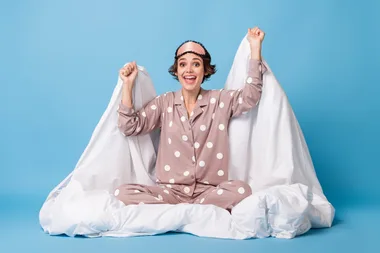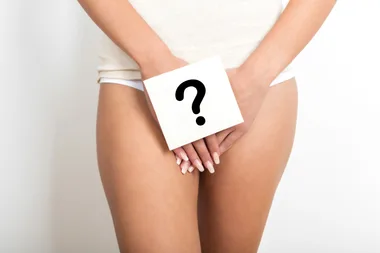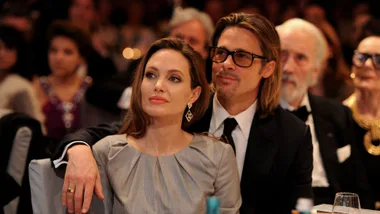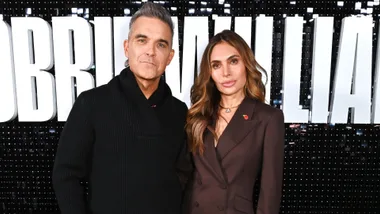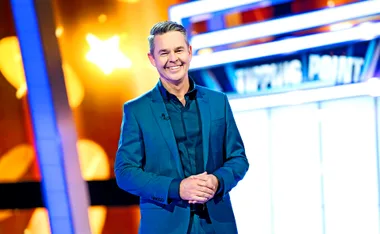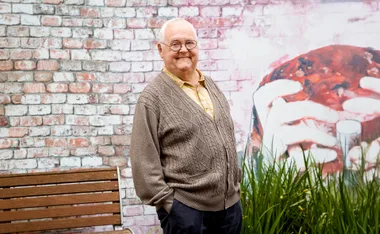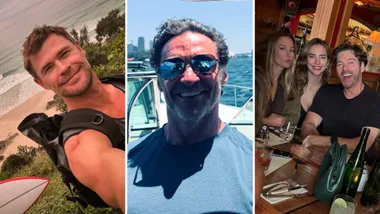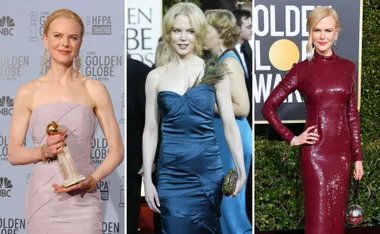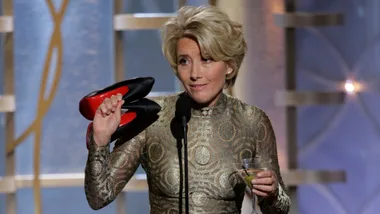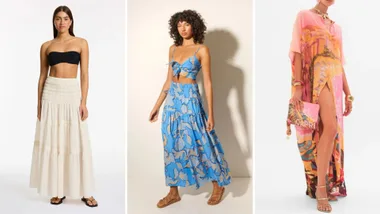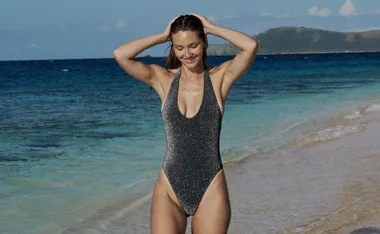Marian Keyes’ novel, The Other Side of the Story (Penguin/Michael Joseph) has been selected as the Great Read in the April issue of The Australian Women’s Weekly.
**Q Congratulations on your new book, The Other Side Of The Story, it made me laugh so much – I had more fun with it than I’ve had with a book in a long while.
A** Oh thank you! I am delighted, Carol. And thrilled it’s been selected for the Great Read.
**Q You’re visiting Australia soon I’m told?
A** Yes, I arrive on March 27. I’m looking forward to it.
**Q Is it your 2nd or 3rd trip here?
A** It’ll be my third trip to Australia.
**Q Are you taking a break while you’re here or working the whole way through?
A** I’m going to New Zealand first, so I’m taking five days there before I start to get over the jetlag. The other times I’ve come I’ve come to Australia first. I’ve been to the Barrier Reef – t’is no hardship at all to be getting over the jetlag there. But I’ll have my weekends off, you know, so I’ll have a weekend off in Melbourne and one off in Sydney.
**Q Anything special you want to do while you’re here?
A** I have friends in both cities, so I get to see them, which is so nice. And that’s just the best way to see a city, to hang out with your friends.
**Q Are they friends you’ve made here?
A** One of them in Sydney is someone I used to work with in London. And then the girl in Melbourne, is the best friend of my brother’s wife who has just got engaged to an Australian man. So I am under orders – ‘could I videotape him?’ – so that my sister-in-law can see that he’s suitable (laughing).
**Q Does jet lag affect you much?
A** It does, I’m the biggest wuss in the world. I’m ho-pe-less at jetlag. I’m married to my circadian rhythms, you know, it takes me ages to find my feet. So every time I come I put aside five days to get over it.
**Q It’s a bit hard trying to talk and think when you’re in the fog of jet-lag?
A** I know! And I have so many lovely fans and readers there, but I want to be compos mentis to be able to really enjoy it.
**Q Book publishing is part of the setting for your new book – is that because you know it so well?
A** When I started to write this book I actually wanted to write about gender issues – women in the workforce. How women find it harder to get promoted. How the glass ceiling is the real thing. And I thought about the various ways I could write about it and I thought publishing is an interesting one because it is actually woman friendly. And because I knew it so well I thought that it would be the one I could write with most conviction. I have two friends both of whom are lawyers and they both encountered the glass ceiling the last couple of years. It would have been a good one to write about, but I thought it would have been encroaching on their lives to write about a legal partnership.
**Q I know all characters are composites, but I was wondering if any of the characters in this book would make anyone in publishing in the UK uncomfortable at all?
A** I really hope not. I promise there is no real person in there – I would never knowingly put a real person in. Especially in the publishing world…I didn’t want to step on anybody’s toes or upset anyone so I really hope not. And everybody is wondering who Mark the agent is. God’s Honour! He isn’t anybody real, I promise.
**Q Did your new book set people gossiping in publishing circles?
A** It did in the UK, they were wondering who the agents were and who the editors were. Definitely! But I promise, I really mean it there was not a real person in there, it would be a terrible abuse of power to do that. Everyone would hate me.
**Q The Other Side of the Story also contains an interesting portrait of authors and you’ve skewered a few egos there as well?
A** I suppose authors are just ordinary people, too. That’s why I became a writer. From the outside looking in I used to think they were the most glamorous creatures, who never had any worries and who coasted along on this perfect life. That everything happened as it should. Being one myself, and knowing a fair few now, I can see how careers can go up and careers can go down, how authors can feel superseded by the hot, new, young girl. And how insecure most authors are. And easily threatened. I speak for my self of course, I don’t really speak for everyone else.
**Q I loved the book signing scene in your book where the new, young author Lily has a photo the size of a postage stamp in the window and no-one queuing to see her while the big star author has the huge poster and the crowds?
A** You see, it happens like that. I have done disasters in my time. I have! I’ve stood there with the tumble-weeds blowing past me. I have done signings where not one single person has come. And people have asked me to direct them to the crime section or the biography section. Honest to God Carol, I’m not making it up.
**Q This must have been very early on in your career?
A** It wasn’t! It was book three (laughing)! But things like that are absolutely fabulous because they skewer the ego. They remind me that I am nobody. That if I am anybody at all it is the result of other people’s kindness. The support of my fans. It’s fantastic to be reminded of that. It’s a great lesson. And it still happens. Not the complete tumbleweed scenario, but there are times, like at literary festivals, where say you have four authors at one table. One will have a queue to the door and the others will be sitting there with fixed smiles on their faces. But look, (laughing) it’s all grist to the mill.
**Q One of the things I really like about your writing is the joy in it. I was wondering if you think that there is something about the Irish character that makes you embrace life and laugh at it, when things get bleak?
A** Definitely Carol. I think it’s been a survival mechanism, something we’ve learned over the 800 years of occupation. Because during those 800 years, we were denied the right to own land, denied the right to an education, we couldn’t even speak our own language. We survived! We didn’t buckle. And I think we survived by a kind of subterfuge, by using laughter when we could have succumbed to despair. They’re very symbiotic, despair and humour, in the Irish character, and definitely in my work. But I do think it is an Irish thing. We do laugh at our misfortune. Because if we didn’t, we’d cry. And It’s a great thing to have. I see it in other cultures as well. It’s a very Jewish thing as well. There’s that whole survival thing. Humour is the most fabulous survival tool. I was in Russia recently and I was very impressed because they do depression with great verve, with real passion. But they don’t do the humour at all, which was very interesting for me. They are very comfortable with the whole melancholic thing. By contrast, Irish people do everything they can to transcend it.
**Q The plot of your new book begins with Gemma finding out her dad is leaving her mum for a much younger woman. In Australia we call those men silly old farts – the older guys who discard their long time wife for reasons of vanity and ego…
A** And fear of their own mortality.
**Q I wonder why men succumb to this more than women?
A** There is that whole cave man theory that men are biologically programmed to want to reproduce as much as possible. And the loyal wife is past the age of being able to produce any more children. So suddenly some kind of age-old instinct re-emerges and suddenly they have to go off and find somebody younger in order to impregnate them. Now, I actually think that’s a load of rubbish! I think we all have cave man or cave woman – cave person’s – instinct, just below the surface. But we manage to keep them in check. We don’t grab things out of people’s hands when we see them on the train. We don’t steal another woman’s shoes just because we want them. We might want to steal them, but we restrain ourselves. I just think that cave man’s theory is something invented by a male scientist. I think – I mean it’s a huge question – but I do think it’s a fear of mortality and that women are simply more mature. Maybe because women give birth they are more connected, more at peace with the whole idea of birth and death. Women are more grounded in their own mortality. Or in actual humanity, perhaps. But it’s a terrible thing for a man to do that…a terrible thing all around.
**Q And there’s the ramifications for the whole family. In your story, Gemma is genuinely shattered, too?
A** Yes, because she feels abandoned also. I think if my dad left my mother for a woman closer in age to me, I would feel abandoned, a peculiar kind of abandoned. An unexpected response because you’d think you’d be more annoyed on behalf of your mother. Her feeling is about herself.
**Q Another theme in your book is female friendship and betrayal, when Gemma’s friend Lily finishes up with the man Gemma loves. How did you feel about what Lily did?
A** I was really torn because I could see both their point of views. But I actually don’t think Lily was wrong. Yet I could understand how Gemma would feel. Because I do think with Lily and Anton, it was the real thing. It wasn’t a fling. Lily wasn’t being cavalier. She wasn’t thinking, ‘oh, he’ll be okay for a while.’ It was a powerful emotional connection, so I think in that case, the strength of the relationship with her and Anton, kind of cancelled out the betrayal. But from Gemma’s point of view, it makes no difference whether Lily is having a fling or whether Lily has met the love of her life. Lily is with the man Gemma loves! There is no right or wrong. And I think context and detail is very important. I suppose because of the book being called The Other Side Of The Story, I wanted to show that in some situations, it’s not black and white. That there are so many different versions of the truth.
**Q In the same way Jo-Jo’s affair with her married boss is not what you think it is?
A** No, because having a relationship with a married man so goes against her fundamental moral code. She’s just not that kind of person. I think that’s the way it is for so many human beings. We’re conflicted about situations. We want them but we’re ashamed of it. We want them but there’s a lot of grief attached to it. It’s tricky. Relationships are a minefield. And I didn’t want to be judgemental. I didn’t want it to be only baddies. I wanted all three of the women to be sympathetic and to share with us their different versions of the truth in the same situation. It’s so easy to be judgemental but it’s so often not the right approach.
**Q How long have you been married for now?
A** Eight years.
**Q I’ve seen mentions of your husband – would I be intruding if I asked about him?
A** Nooooooo, of course not!
**Q Was yours an instant powerful attraction, a Lily/Anton moment?
A** No, no absolutely not. No, I knew him for a good long while. He was actually going out with somebody else. I don’t know how much of my biography you’ve been given but I went into rehab (for alcoholism) 10 years ago. I knew Tony before I went into rehab and then when I came out of rehab – I’d always had quite destructive relationships, you know. Not always, I have had some lovely boyfriends, but I often picked men who helped me endorse my low esteem. Men who weren’t emotionally available. Men who weren’t really interested in me. When I came out of rehab I was loathe to have a relationship as I was focussing on my recovery, which was absolutely appropriate. Tony and I were friends! He was your old fashioned guy, like we always went to the pictures and he’d offer to bring me home. He was gentlemanly. I actually thought I didn’t find him attractive at all. I didn’t think he was my type! He was way too nice. It took months and months and months and months – it was a slow burn. Then when it did dawn on me, it hit me with the force of a sledge hammer. He was coming to collect me one afternoon from work and I was waiting on the steps of my office and I just saw him coming around the corner and it was like ‘wham.’
**Q You suddenly saw him?
A** I did! And it was great!
**Q What does Tony do for a living?
A** When I met him he had a fabulous job, working as a an IT consultant and I had a crappy job in an accounts office. I basically ruined his life (laughing). When we moved to Ireland six years ago the idea was that he would get a job in Irish IT and I’d get on with my writing, but there was a lot of admin involved with my job. So he decided he’d tie that up first and then go on and get a real job. But the admin just kept on coming, so…but that’s what he’s doing now, he does all the office work. So it means he can like, come to Australia with me. We can travel together. We work together at home although we’re in different rooms.
**Q It’s perfect!
A** Yes it is, but I have to touch wood, I’m always terrified of sounding smug. You know how you hear of people who say, oooh, my marriage is so happy. And then like a month later, he’s caught coming out of a hotel with another woman or something…you know what I mean? You don’t want to jinx it.
**Q Sounds like you are having a great life at the moment?
A** We’re blessed. It would be very hard if we weren’t working together. I’d never see him. If he was in a regular 9-5 job in Ireland or the UK, I’d never see him. I’m away four to five months of the year. As it is, everything becomes an adventure.
**Q Gemma writes to her friend in the US via emails throughout the book – they’ve sure taken over from letters and phone calls, haven’t they?
A** Totally. Even for like short little local communications, I send an email. It’s just easier, because you’re not dependent on another person being at their desk. But they are all pervasive.
**Q It’s a shame there won’t be any letters for the grandchildren to look back on?
A** No. My grandfather was imprisoned during the civil war in Ireland and my mother still has copies of the letters he wrote to my grannie. He calls her ‘friend of my heart’ – gorgeous isn’t it?
**Q I imagine you’re a huge star in Ireland – can you still move around freely, go to the supermarket and do normal things like that?
A** In Ireland they have this great, anti-celebrity thing – not that I’m a celebrity. But they are kind of very proud of the fact that they don’t bother people. The whole American thing, you ask for autographs, you get your photo taken with them if you spot somebody famous. Ireland is the other way, it’s kind of like…”oh, well let the man alone, we’ll not be badgering him.” Sometimes people address me by name. Say I’m in a shoe shop and I say do you have these in my size? They’ll say “I’ll have a look for you, Marian.” And I’m like – ‘WHAT!” I don’t ask like I’m something special, because I’m not something special. I think there are some people who seek attention or they ask in an attention needy way. I don’t show off in a floor length mink coat. I go off in my loafers to do my shopping. I have no makeup on and my boots are muddy and you know…so no, my life hasn’t really changed like that, certainly not in the sense of being mobbed in the street – not at all. Which is exactly the way I like it.
**Q I think Australians are a bit like that too.
A** Yes, the whole kind of democratic, classless thing.
**Q I’m sure that stems partly from our Irish heritage.
A** Yes and from having been a colony. But we’re as good as anyone else.
**Q So long as it’s not malicious, I don’t think the cutting down of tall poppies is a good thing?
A** Yes! I’m only lucky you know. If I have anything it’s because of the generosity of other people. I can’t start thinking I’m anything special, because it entirely depends on other people’s kindness. I think humility is very important.
**Q One of the recurring themes in your book is redemption, going from the darkness into the light. It’s a very optimistic message and imbues your writing with hope – does that stem from you having recovered from alcoholism?
A** You know, my life changed so much. From terrible despair and isolation and paralysis and complete lack of hope into something beautiful, so if I can come this far with the help of other people, it made me believe that human beings are incredibly resilient. And are totally capable of changing the destructive path they are one and moving into something far more healthy and positive. All my books are hopeful and that’s because of what happened to me. There’s no doubt about it. I think if my books had bleaker, grimmer endings, I might get more respect from the literary establishment. But that’s not what I’m interested in. I write primarily to cheer myself up. And I’m not going to compromise on my happy endings, just to get the respect of critics.
Q That’s ridiculous to think a happy ending diminishes a book. Your book left me feeling full of hope, knowing that things can and will turn out. A Isn’t that great!
**Q I also think The Other Side of the Story is one of the funniest books you’ve ever written.
A** Ooh thank you! I’m delighted!
**Q Having a job that puts you in close contact with alcohol at all those dinners and cocktail parties, is it ever a temptation? Or tough for you?
A** I’m an alcoholic and I will be an alcoholic until the day I die. I do a lot to protect my sobriety. At the end of the day, if I take my eye of the ball, I can drink, that’s the long and the short of it. So I am careful. I try and minimise that whole thing. It’s the late nights I find difficult. I can be around alcohol early in the evening. Once it gets to a stage where people are drunk around me, it’s time for me to go home. It’s inappropriate for me to be there. And I know that doesn’t go down well. People think ‘oh well she’s a stuck up cow,’ what’s she doing? I can’t be tempted. The last thing I want to do is come across rude. And I know that people often don’t understand the disease, how dangerous it is. But I have to do what I have to do.
**Q I hope you don’t think this is an awful question…
A** Not at all… ask away.
**Q I read of your failed suicide and wondered did you fail because someone found you or…?
A** I rang somebody. It was more of a cry for help. I mean, I was in despair. If I was not in despair I wouldn’t have made the phone call. It was the catalyst for me getting help. It was such a shocking thing to do, even if it was only a cry for help and not the real thing. I couldn’t explain my way out of it. Things had got so bad by that gesture. People took my alcoholism very seriously. I suppose I took it seriously, that was probably it, you know?
**Q What had you taken, sleeping tablets?
A** Yes and anti-depressants.
**Q Ten years later you’re on top of the world with a wonderful relationship and a great career – your family must be so proud of you?
A** They are. Wait till I tell you, Carol. My mother. She’s fabulous. People often say ‘you must be so proud of Marian?” And she says, “we were always proud of her.”
**Q What a lovely thing to say?
A** It’s just beautiful.
**Q It’s her way of saying she doesn’t care if you’re famous?
A** No! Not at all! She’s so funny about the money. Because I have more money now than I used to have. And she won’t take a penny off me. I go over there every Thursday and she makes dinner for me and Tony and my brother comes too. The milkman always comes to be paid on Thursdays. She has to go upstairs to get her purse and she has arthritis, so it takes a while, you know? So I say, “Mam, I’ll get it.” And it comes down to like arm-to-arm combat. “You will not pay him,” she says. “You WILL NOT!”
**Q Just because you’ve done well it doesn’t mean your mum can’t afford to pay the milkman?
A** Exactly! Isn’t that a great way to be?
**Q Can you give me three adjectives to describe yourself?
A** Kind, melancholic and hopeful.
**Q Can you finish the sentence, Marian Keyes hopes….?
A** Hopes? Ooh! It’s a big one (question)! Hopes they find a cure for cancer. Is that a really crap answer? It’s just that I have a friend who has breast cancer. It happens to so many women, it’s so shocking. So I wasn’t being flippant when I said that.
**Q Marian Keyes likes?
A** Shoes. And can I put sweets? Lollies you call them in Australia.
**Q Do you wear stilettos?
A** I wear high heels all the time because I’m very short. I’m five ft one in. I adore those ballet slippers but I look ridiculous in flat shoes.
**Q Marian Keyes dislikes…
A** Stingy people. I don’t mind if somebody is poor. I have no problem with that. Someone who stands back and never buys a round – you know? Can’t stand them.
Newsletter conversion description. Get the latest in your inbox.

